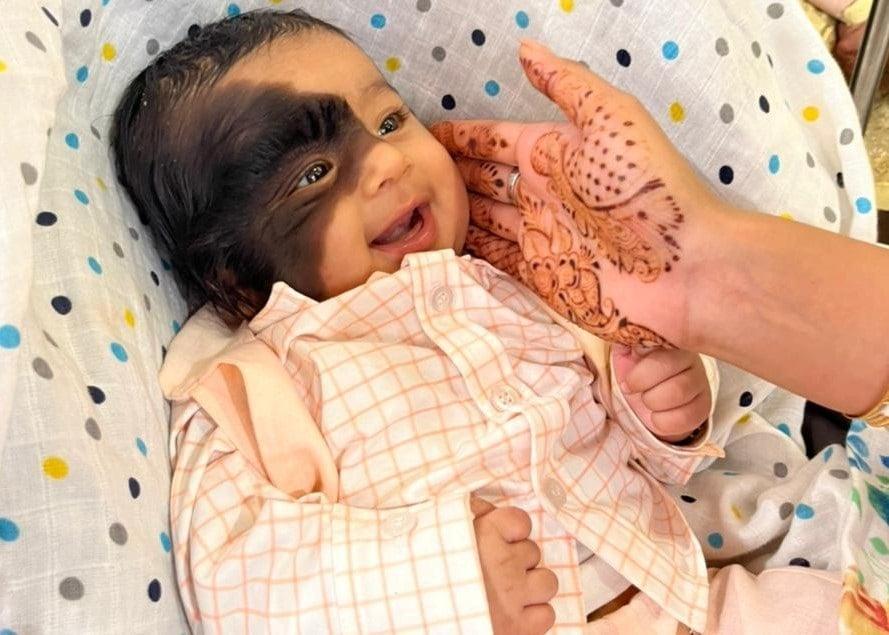Africa-Press – Ethiopia. When Kanika Aneja, 30, from California, US, gave birth to her son, Avyukt Kalra, she didn’t even notice his birthmark.
Medics are still at a loss about what caused it.
Kanika and her husband, Deepanshu Kalra, 31, focused solely on reviving their seemingly unresponsive baby and medics in the labour room went silent as they grappled to understand what was happening to him.
The huge black birthmark couldn’t be missed when their little warrior was revived.
“When we first saw him, we never realised he had a birthmark,” said Kanika. “We just gazed past it into his eyes. He was born motionless, and at that time, that was more concerning to us than his appearance. Everyone in the labour room was quiet, and there was a wave of confusion, sadness, and inquisitiveness,” the mother said.
Kanika and Deepanshu spent days and nights researching their newborn’s condition, and it was revealed that the baby was born with Giant Hairy Congenital Melanocytic Nevus (CMN). A rare disease affecting 1 in 5 000 000 births.
Giant Congenital Melanocytic Nevi (CMN) are visible pigmented (melanocytic) proliferations in the skin that are present at birth. CMN are benign, tumour-like malformations resulting from the development of pigment cell (melanocyte) precursors in the embryo and composed of a strange mixture of skin elements.
For the new parents, having a happy, living baby is more important.
Still, they have to endure ignorance from strangers who try to blame their parenting skills when they see their son’s appearance.
“Whenever we step out, there are looks,” said Kanika. “These looks are not just at him, but at us as well as if this is something we did.
“I understand that many people are curious to know about his condition, but some turn out to be very mean.
“While some people asked me if it was something I did during a lunar eclipse, others asked if I burnt something when I was pregnant. People have even gotten to the extent of asking us if we smoked during my pregnancy. I have even been asked ridiculous questions about whether I scratched my forehead during my pregnancy.”
What also hurts the parents is that people fail to educate their children about birthmarks, so their children become rude to their son.
“One young girl around three years old told me in the park that she felt scared after looking at him,” said Kanika. “The little girl said that she didn’t want to look at our son. I didn’t know how to react, except I cried a lot. People have gone to the extent of saying nasty things, like his skin looks like a dog’s skin.”
“I sometimes read other parenting stories on Facebook groups, where parents have the policy of not even discussing beautiful vs ugly topics with their kids,” said Kanika.
She added:
“He deserves a wonderful childhood like any other kid and should not be answering questions about what his parents have done to cause this birthmark.”
An MRI scan of Avyukt’s brain found that it was free of any marks or spots.
“It will be a costly procedure- £200k (about R4.7 million), and the recovery would be around one year with multiple reconstructive surgeries over the later years.
“Just like scars fade away, maybe in some years he might start looking the ‘normal’ way. I am aware that this is our ongoing struggle.”
For More News And Analysis About Ethiopia Follow Africa-Press






